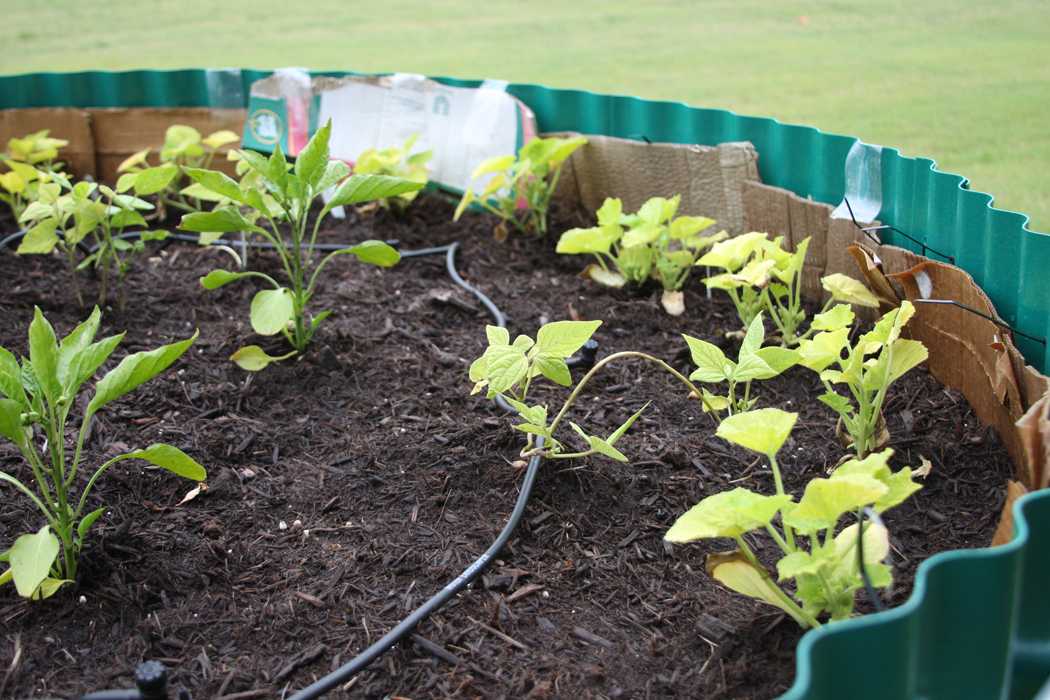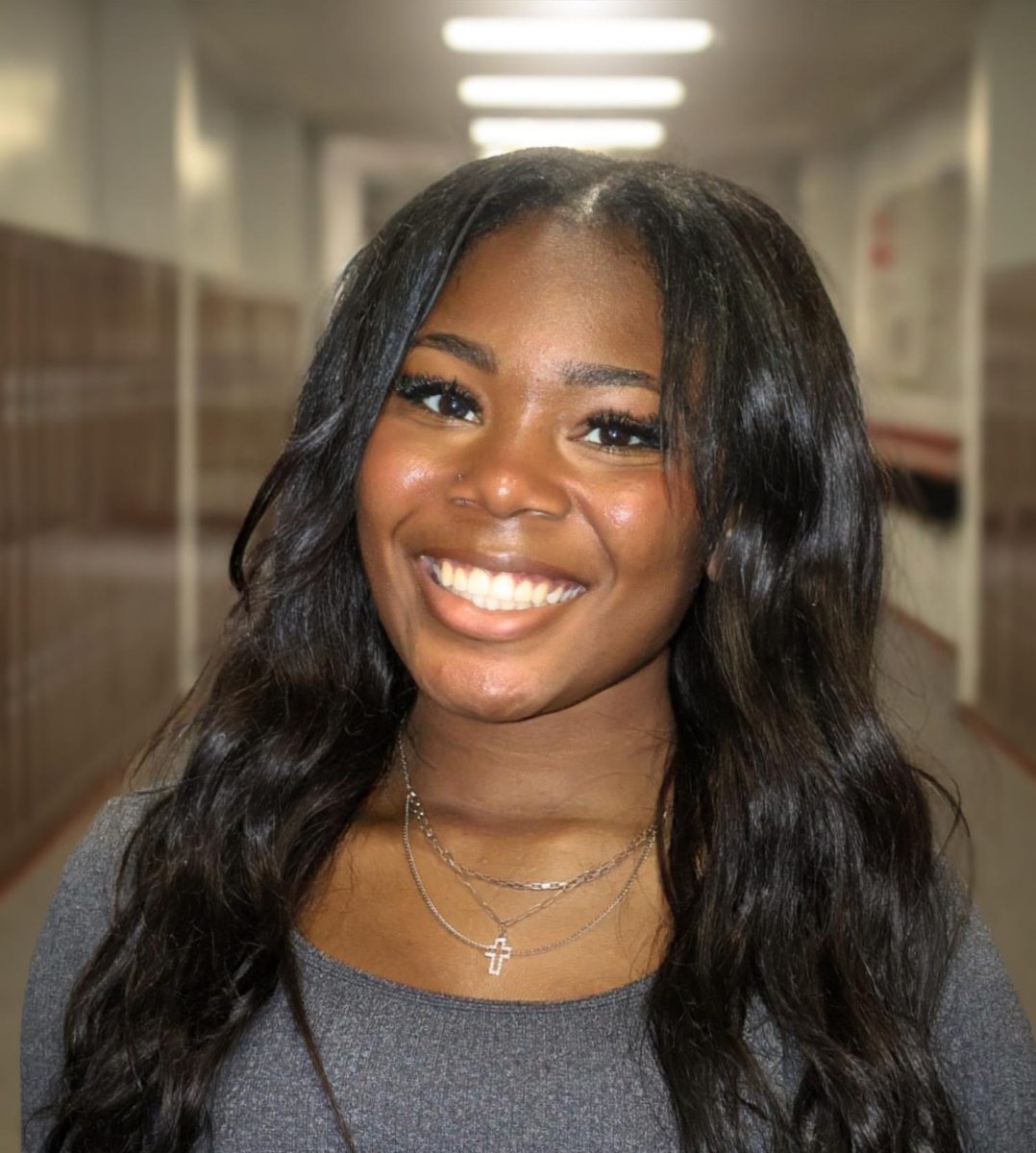Her garden is not only environmentally friendly, but stems from a good cause as well. Junior Dhara Patel first planted a garden with her church to supply food for those in need and has decided to extend the idea to the school.
“It started at my Sunday school five or six months ago,” Patel said. “We donated the produce to homeless shelters and food pantries. I decided that if I could do one at school that would have a bigger impact because school kids are affecting their local communities.”
Patel’s garden, a keyhole garden, is named for its similar shape and originated in Africa. Keyhole gardens are drought-resistant and made from all-natural materials, though that is not the only feature that distinguishes them.
“Inside there are several different layers,” Patel said. “The first layer is cardboard and then there are six more layers of leaves. At the very top we have compost, organic soil and the plants: turnips, green beans, bell peppers, squash and cucumbers. They are all organic plants.”
Patel has also added an irrigation system for the garden, though watering it is not required as often as it is for other gardens.
“I installed little sprinklers or spikes inside the garden,” Patel said. “All you have to do is attach a hose and when the hose is turned on, little droplets of water reach the plant. It reduces the vibrations, which also reduces water loss, saving water once again. There is a compost layer in the middle which nourishes the plants.”
The garden is located near the school’s baseball field, and in order to prevent rabbits and other small animals from eating from it, it is raised about 4 feet off the ground. Completing the keyhole garden was no easy task, according to Patel.
“It took me from 7:30 a.m. to 7:30 p.m.,” Patel said. “I had lots of help from people at my Sunday school, though, so it went by faster.”
Patel said another goal of the garden at the school is to get others involved in projects and make young people aware they can they make a difference as well.
“I hope to involve more clubs like Key Club, National Honor Society and Environmental Club, as well as classes like AP Environmental Science and Landscape Design,” Patel said. “I want to get them involved and show them that we want to have a bigger impact on the community. I want to show them how we can do this and its importance. I hope to show them what a keyhole garden does for the environment and what students can do to help their communities.”
Though everything about the garden is environmentally friendly, Patel is partial to some aspects of the project.
“I have two favorites,” Patel said. “My first is that it requires no weeding, so you don’t have to pick any – all you have to do is just let it grow and you are fine. My second favorite thing is that it requires very, very little water. I water it once a week and I am fine. The garden just keeps growing.”
For Patel, dedication to the garden and the environment itself should be a concern for all students because the environment affects everyone.
“It is where we get everything,” Patel said. “We get our food from the environment, we get our water from the environment, everything we own essentially comes from the Earth. I feel like our generation needs to step up to the plate and actually think about what we are doing to the Earth because if we continue what we are doing, with polluting our water systems, polluting the air and polluting all our natural resources, we are not going to have anything left. When we do not have anything left we are kind of, well, dead. I just want to see more involvement with our school in general.”







